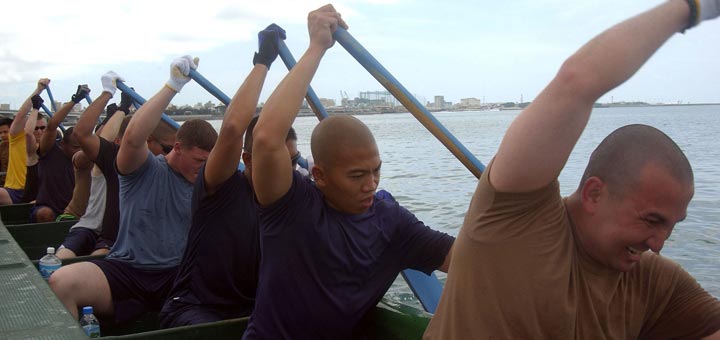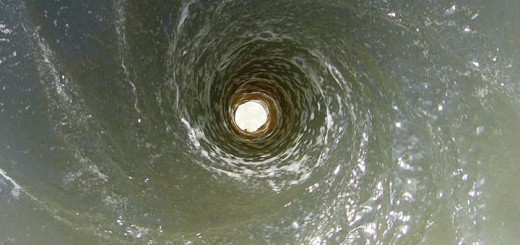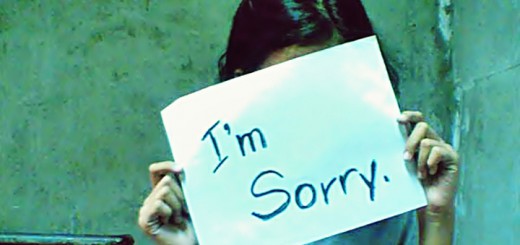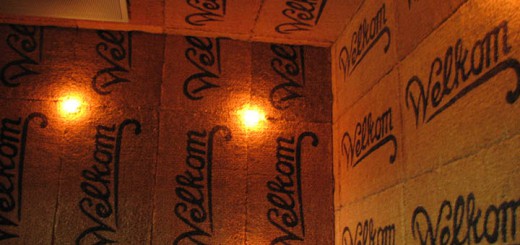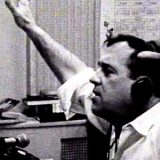All Together Now
As the podcasting business consolidates, it’s not unusual for independent podcasters to find thoughts of forming a podcast network dancing in their heads. If they work together, a podcasting network can bring its founders and hosts increased visibility, improved content quality and a shot at some serious advertising dollars. If not, the network can sink itself before it gets started.
Not long ago, I took the opportunity to gleen some real-world advice on building and sustaining a podcast network from Matt Carter and Mike Mowery, two of the three founders of Jabberjaw Media, a music-focused podcast network that began operating in November, 2015.
Chase Content Not Cash
A few months may not seem like a long time to learn any meaningful lessons, but too many podcast networks fail long before that. Often, it’s because the founders take their eyes off important goals and focus on that universal bogeyman, money.
“We decided to use our resources to empower our hosts. That’s the best way to monetize a podcast. Yes, we want revenue, and we want to participate in that revenue, but our focus is having really great shows in their own right.” Mowery said. “The individual show is just as important to us as the network.”
Carter, who’s a successful podcaster in his own right, homed in on empowerment. “I’ve learned a bunch of podcasting ins and outs—including content, editing and advertising—that I share with other people. By working in a cooperative way, we can increase our skills and visibility and it will be mutually beneficial all the way around. We’ll all learn together and grow together.”
Create Communities Not Companies
Carter, Mowery and Nick Bunda, who wasn’t available for the interview, have backgrounds in the music business. They attribute much of Jabberjaw’s philosophy to the experiences they had working as, and with, artists and performers. Artists and performers are fragile creatures, they learned. While that fragility is a source of creativity it also presents a management challenge. Jabberjaw chose to meet that challenge by building an artist-friendly environment.
Unfortunately, “artist-friendly” is so stylish it’s become an empty term. It’s meaning has to be teased out of the user.
“The network has to be all about communities,” Carter told me. “because that makes the network organically valuable on its own.”
But a sense of community can easily tip into a situation that tears the community apart. Once past that Kumbaya moment that sweeps through a new community, members proceed to disagree on their rights and responsibilities. That’s why Jabberjaw relies on contracts as well as handshakes. But mishandling contracts can also lead to rips in a community’s fabric.
“We don’t want to lock somebody in to work with us if it’s not working for either party,” Mowery said. He’s in charge of contract negotiations for Jabberjaw. “I’ve been in artist management for a long time, and there are moments in an artist’s career where they don’t think its working for them. Usually, they’re missing the point about what you’re doing for them. What the contract does is let that conversation take place instead of somebody waking up in the middle of the night and saying we’re gone. We want the feed back from our hosts because we want this to work for them and for us.”
To keep that artist-friendly environment, Jabberjaw stresses relationships over growth. “All the shows are hosted by people that we know, people we have mild connections with or people we’ve been hanging out with. We’ve done each other’s shows. So we’re really formalizing these connections. We’ve done a couple of shows with people that maybe we don’t know as well and we’ll continue to do that as long as it makes sense,” Carter said.
Combine Complements Not Companions
The final bit of advice, and one that struck me as perhaps the most important, was the network had to begin with people whose skills complemented each other. While this is common practice among most startups, all too often, networks are started by “the talent,” two or three podcast hosts looking for an environment in which they can find both resources and moral support.
“Although we all wear many hats, the three of us have our unique specialties as to what we contribute. Matt runs great podcasts and has tons of advice about what makes somebody go from a good host to a great host. Nick is the sales person. I come from business development, and I’ve developed artists, my own companies and and a few companies for other people. That’s what allows us to come together in the ebb and flow and help these podcasters we’ve brought into the network,” Mowery told me.
Continue with Care
“If your expectations are balanced and you know what you’re trying to accomplish I think it’s good,” Carter said, “but you need to be honest about what your goals are and how you portray that to your hosts, listeners and yourselves. It’s almost too easy to say you have a podcast network as a way to self-validate, but that’s not the best reason to do it. You want to genuinely create things of value and do it soberly.”
Some sobering advice that can save you from spending time rowing upstream.
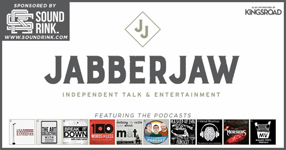 Jabberjaw Media, was founded by Matt Carter (Emery, The BadChristian Podcast), Nick Bunda (BCPOD Producer), and Mike Mowery (Outerloop Management) after they saw a need for podcast hosts to strategize and find ways to build stronger audiences and share tips under one roof. Jabberjaw enables direct communication between artists and their audience without the influence of media conglomerates or other gatekeepers. The artist-friendly network focuses on creating compelling content by encouraging free expression of thoughts, ideas, and beliefs.
Jabberjaw Media, was founded by Matt Carter (Emery, The BadChristian Podcast), Nick Bunda (BCPOD Producer), and Mike Mowery (Outerloop Management) after they saw a need for podcast hosts to strategize and find ways to build stronger audiences and share tips under one roof. Jabberjaw enables direct communication between artists and their audience without the influence of media conglomerates or other gatekeepers. The artist-friendly network focuses on creating compelling content by encouraging free expression of thoughts, ideas, and beliefs.
[jetpack_subscription_form title=”Get Every Blog Post” subscribe_text=”Enter your address to receive every new post by email.” subscribe_button=”Join Us >>”]

